Be in no doubt about it – if you’re going to write for the screen, then you’re going to be writing genre. Thriller, sci-fi, crime, fantasy, comedy, horror and so on, everyone wants genre and these days they often want two genres, a comedy isn’t enough: it has to be a romantic comedy, a thriller isn’t enough it has to be an action-thriller, a horror isn’t enough it has to be a sci-fi/horror.
Why?
Well, they’re easy to describe and thus easy to pitch, but they’re also easier to market and sell because there’s an in-built audience for most genre movies, and fans of a genre will often consume whatever happens to come their way just to feed their appetite.
But what are the hardest film genres to write, and why?
Well first of all, we would say that if you have no love of any particular genre then you are always going to struggle to write it. People naturally find it easier to write the kind of films they love to watch, partly because it’s is easier – familiarity can teach us when and how to hit the right beats for that kind of story – but also because we’ve already spotted the rising trends for it and we know the tired old clichés to avoid. So, if you’re someone who rarely, if ever, watches horror, has no love for the genre, and doesn’t get why other people do, you will in all likelihood struggle to write a horror film, no matter the size of carrot being dangled in front of you.
Blake Snyder’s famous quip – “give them the same, but different” – is one of the all-time greats in terms of pithy screenwriting advice.
Then there’s the commercial aspect to screenwriting, because like it or not it’s the film ‘business’, and if your script is ever going to be produced then you need to persuade someone that there’s an audience for your story. While you’re doubtless positive that a Spencer Perceval biopic is just what the market is clamouring for, the man holding the purse strings will not be so easily persuaded unless, of course, Tom Cruise wants to star in it.
That said there are some genres that are especially hard to write, even more so when mashed together with other genres where the two don’t naturally lend themselves to an easy partnership. Let’s take a look at these notoriously difficult genres and discuss what makes them so hard to get write and, if we’re determined to go ahead anyway, what we can look out for to give ourselves the best possible chance of success.
1. Comedy
Comedy is generally considered the hardest of all the genres to write. The problem is that it’s so subjective. Just because you say funny things to your mates down the pub, doesn’t mean you can write funny things down and they’ll still be funny on paper. Seriously, how many times have you heard someone mess up a punchline because the timing was off, or the delivery was confused, or they got side-tracked and lost their place. Now imagine those problems in a script that someone is reading cold. Nightmare!
There’s an old saying that a strong story with one or two laughs is better than a weak story with loads of laughs and it’s very true. A lot of comedies falter because of a flimsy story and you can’t cover-up a weak plot by layering gags over the top. The audience need someone to root for and comedies, like all films, need big stakes and likeable characters for the gags – which are only there to support the story after all – to work. Finally, what makes you laugh might not make anyone else laugh. Worse yet, you can end up sounding stupid, sarcastic or racist, and what’s funny about that? And what is funny is always changing. What made us all laugh 10 years ago won’t make us laugh today because as we get older our tastes change.
So how do we succeed at comedy?
The biggest tip we can give is to get a writing partner. No, really. If you look at the top tier of comedy writing talent it’s dominated by partnerships. Why? Well we’d guess it’s because two (or more) comedy heads are better than one, and the constant bouncing of ideas back and forth will weed out the weak gags from the strong ones, the strong stories from the flimsy ones.
In the writing, comedy characters tend to have a low goal and display intense effort to achieve that goal e.g. man wants to have sex / will do anything to get it, or they expend intense effort but with terrible ability; imagine Woody Allen on a first date. Comedy is about breaking down facades and showing people as they really are but they tend to be circular, and in the end nobody learns anything, hence sequels, but your original script had better be hysterically funny from the first page to the last.
2. Romantic Comedy / Romance
Romantic comedy has to be all of that, and be romantic as well. But romance means different things to different people, and done badly it will likely come off as clichéd and sappy. Romantic comedies have very specific story beats to work to, like the ‘meet cute’ where the couple first see each other; they have to dislike each other at first, but later like each other, you have to include sex but not be too overt with it, the characters often argue and fight but then make up – all of this is hard enough in real life, but to have to make it all up… No thanks!
But if Rom-Coms are your thing, then remember to concentrate on two key elements; get the chemistry right between your couple. They must be opposites that attract but also have complementary inner needs. The extrovert brings out the introvert; the introvert calms the extrovert and so on. Also, make the arena of courtship interesting – opposing lawyers in a courtroom, political rivals in an election, Scrabble championship rivals – it increases the natural tension and makes the pitch more interesting. A strong romantic comedy (WHEN HARRY MET SALLY) will find a date night audience and can run forever, but a bad one (FOOL’S GOLD) will die after the first night.
3. Historical or Period Dramas
The words ‘period piece’ usually elicit visions of petticoats and corsets, windswept moors and rambling country piles but the ‘period’ in period drama can equally mean any previous time period that isn’t now. That means that AMERICAN HUSTLE, L.A. CONFIDENTIAL, SHAKESPEARE IN LOVE, and THE WEDDING SINGER are all period pieces. But ‘Period Piece’ isn’t really a genre it’s a setting. Any film be it a drama, a thriller, a murder mystery or a comedy can also be a period piece, so you’d better be sure you know the beats of your primary genre first, and then add the period details on top and that’s where it gets difficult.
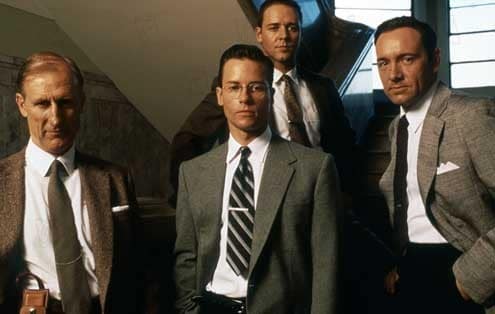
Getting period details right means research, lots of research. Part of the reason why Julian Fellowes has ‘period’ sewn-up with the likes of DOWNTON ABBEYand GOSFORD PARK is that he knows those worlds inside-out and back-to-front, from which spoons go where on the dinner table to what clothes to wear for a formal hunt and that detail is on every page and makes his work sing. Additionally the language of regency England or Renaissance Italy or Norman France is totally different to modern language. People don’t always talk directly about something, they skirt around it or they allude to it and social status played a huge role in who you could talk to and about what.
But if you think you have what it takes to go up against Julian Fellowes, or for that matter Shakespeare, Dickens, Austin or Brontë then by all means go right ahead. Just make sure you spend a lot of time getting the period details right because they count.
4. Horror-Comedy
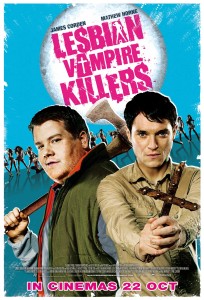
Horror can be as subjective as comedy in that what is horrifying to some, others will find humdrum. But good horror, while still hard to write well, is considered relatively easy, and for a lot of breakout writers their first produced feature is a horror. But when straightforward horror isn’t enough that’s when producers start to add the other genre layers, and while horror/comedy is a popular request, it’s very difficult to do.
The big problem with horror-comedy is getting the tone right. People will often crack jokes in order to cope with horrific circumstances because humour is a surprisingly effective coping mechanism. Jokes can often defuse tension. But knowing how much of a joke to crack is the key to making it work. As the audience get nervous, they get giddy, and when they get giddy, they’re practically begging for a laugh to defuse the tension. But mildly scary means only mildly funny. A joke that is too over-the-top for the situation will ruin the tone, but the same gag in a brown-your-trousers terrifying moment can make for raucous laughs. The key is knowing how far to push it to maintain the right tone, and the way to make that work is to have truly great characters. It’s really the interaction between your characters that will make people laugh.
One of our favourite horror-comedies is ZOMBIELAND, which pits two opposites-attract characters against each other brilliantly. One is a nerdy guy who is scared of everything; the other is a redneck who is scared of nothing. One runs from every danger, the other runs towards every danger. The real test of your horror-comedy is whether it works if you remove one or other of the genre layers. If you take out the horror do you still have a pretty funny movie? If you take out the comedy, do you still have a pretty scary horror flick? With ZOMBIELAND, if you take out the zombies you still have a pretty funny road movie, and if you take out the comedy you still have a pretty good zombie movie.
5. Monster Movies
Monster movies have been around forever and they pretty much follow the same template. A monster comes along and terrorises a community and the (unlikely) hero takes charge and saves the day. The monster can come from underground, outer space, the sea, anywhere in fact, and it can be one single giant monster or a ravening horde, but the hero will battle and battle and battle, losing every time so it seems like there’s no hope, until he gives that final big push that ultimately sees him a winner.
So what makes them hard to write?
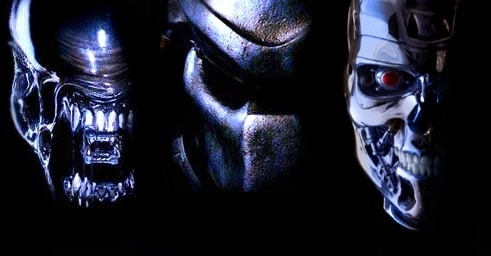
The key to most of these stories is that the monster, because it doesn’t have a story arc, is actually a ‘travelling angel’ archetype, acting as a catalyst to help the people around it change or grow. The monster is the outward manifestation of the hero’s inner flaw, and overcoming the monster means overcoming the flaw. Much like in real life, the characters in movies have to battle their inner demons in order to overcome them and change and grow as people. If they don’t change, then in all likelihood they will be destroyed, either physically or metaphorically. The monster in your movie has to be one that challenges the hero in such a way that they either confront it, and beat it, in order to defeat their own inner demons or makes them run away until they inevitably die – or get weirdly lucky.
Well human flaws remain fairly constant in movie terms, so the really big problem is finding an original monster to represent them. Seriously, when was the last time you saw a truly original monster? The last one we can think of is probably 2008’s CLOVERFIELD and it was so average it stayed hidden for most of the film. We all know the grand daddy of all movie monsters is the shark from JAWS, but does your monster have that kind of staying power? Read our accompanying article on the “Holy Trinity” of Monster Movies, here.
6. Dramedy
The fact is that no one wants to buy drama. Drama is perceived as low-concept, slow, often dull character studies of people living miserable lives in miserable places. Dramas make no money at the box office because no one is interested, and with stories like that it’s not hard to see why. So what did producers come up with to try and combat this ant-drama sentiment? They invented the ‘dramedy’.
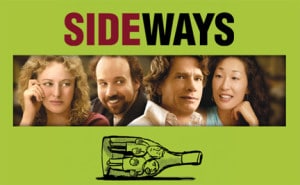
Broadly speaking there are only two kinds of dramedy and they are both hugely reliant on theme. Type one is the human story, and has characters pitted against the subject of the theme by demonstrating its effects on other characters. Type two is where two opposing characters, or groups of characters, each advocate a certain point of view about the theme and the central conflict derives from that opposition. The BIG problem with dramedy is the same as for horror-comedy, it’s really hard to get the tone right, but where a horror can amp-up the tension and then relieve it with a gag, any sense of drama is ruined with a misplaced joke, and most jokes will fall flat in the face of real drama, and there’s the rub; is your film a drama with a sense of humour or a comedy with a sense of drama?
The keys to getting dramedy to work are making your characters multi-layered; give them opinions, foibles, goals, personal struggles and hypocrisies. Put them in a new and original world, something we haven’t seen before or a give us a fresh take on a world we know. Push the boundaries somewhere unexpected, somewhere extreme, but keep it plausible, and let things play out. Make your drama resonate by exploring powerful themes, and finally, when the comedy comes it doesn’t have to be laugh-out-loud funny, make it subtle and truthful and it will stand out all the more.
7. Biopic
Leaving aside the question of film rights, or whether someone’s life is even worth making a film about, biopics are fraught with difficulty in the writing, often blurring the line between ‘bio’ and ‘pic’ by having too little story for a good drama and taking far to many liberties with the truth to qualify as in any way biographical. BUT good ones can be real Oscar-bait and for this reason they can attract big stars.
Many biopics emphasise and examine larger events such as war, or political or social change around a subject’s life as the reason for success. This means that extensive research is essential, archives must be trawled and all sides of every story must be explored to get to the truth behind them and ultimately behind the subject. Also, casting is critical, and not just in the physical sense. The acting – like the writing – has to show the subject as a person, not as a star or celebrity, a saint or a sinner. There must be real balance in the portrayal, they must come across as a fully developed individual and shine a light on the foundations of their rise to fame, which doesn’t mean concentrating on the drink/drugs/sex/violence that may fuelled that rise but showing the talent, hard work and determination that has to exist in the same person. The problem is that hard work isn’t sexy on screen but violent, drug-fuelled binges are.
So how to make them work? Well one of the best ways to have found traction over the last few years is to concentrate on a single specific incident in their life rather than try to cram cradle-to-grave in 2 hours. The ‘partial biopic’ as it’s become known, lets the writer craft a strong story around a solid central core and can offer far better insight into the subject(s) than any string of unrelated anecdotes. The most successful in recent years is THE KING’S SPEECH, but other notables include FROST/NIXON and THE QUEEN.
8. Sports Drama
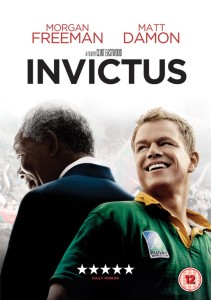
Sports movies, while popular, are riddled with cliché, and finding a new angle or a different approach is hard especially when, filled as they are with themes of life, death, sacrifice and re-birth, they seem to inevitably move towards heavy-handed religious allegory. Often they start with the hero in paradise, a star player in the big game, when he makes a mistake, falls from grace and is reminded of that failure every day. Then along comes a second chance, a shot at redemption, but it’s not going to be easy. The team is poor, made up of misfits and outcasts, and they must be trained, made to listen, to understand, to believe, to ultimately become disciples of his teaching and eventually, through the redemptive power of their collective love, triumph against all the odds by winning and proving they have the right stuff, or by losing, and gaining something much more important – self respect. That’s the problem with sports movies, they’re chick-flicks for blokes, cliché ridden and mostly pretty dull. So how do you make yours rise above?
Well first of all, sports movies are not about the sport – forget the sport – the sport should be in the background and the story of the characters and their physical and emotional struggle is what’s important. Second, have a terrific mentor. No sports movie anywhere at any time has ever truly worked without a good mentor, they must be bold and colourful in their own way and have the depth of personality to carry it off. But the way to pull off a sports movie right now is to have a true story. True stories straddle the grey area between biopic and historical drama – horrendous, yeah – because that means getting the rights to the story, often of multiple people involved, and it also means doing a ton of research on backgrounds, social history and politics, as well as training methods, equipment, industry jargon, locations, sports history and much more.
It’s not impossible, use our advice for writing a biopic and our advice for writing a historical drama and work it together and you should be okay. But best of luck, you’re going to need it.
9. Sitcom
This article largely explores the toughest film genres to write, but we thought that one TV genre demanded inclusion as a wild card entry. If comedy is the hardest genre to write, then sitcoms are doubly tough. You only need two things for a sitcom: an ensemble cast of amusing and interesting characters and a situation that is both amusing and interesting for them to be in. Sounds simple right? Well it is, but it is also that hard.
Sitcoms don’t work with one good character; they need 4 or 5 strong main characters and a large cast of equally strong supporting characters to dip in and out. They have to break into factions, friends and foes and there has to be conflict between the personalities that is brought out by the situation they find themselves in. And there’s another difficult thing, your situation has to provide a convincing reason for why these people keep coming together week after week – sometimes for 100 episodes – when they clearly hate each other.
The way to make sitcoms work is to ground them in reality. The best episodes of the best sitcoms, classics like DAD’S ARMY, PORRIDGE and ONLY FOOLS AND HORSES or more recent successes like THE OFFICE and PEEP SHOW, are grounded in the minutiae of everyday life and in the way we are around each other, whether it’s family, friends or work colleagues, the truth in any given situation must be apparent. Your situation can be as outlandish as you like as long the character’s behaviour is grounded in reality. Of course the humour must come thick and fast, obviously, but not at the expense of reality. It’s no wonder that the best sitcoms of the last few years have a whole raft of writers working together and bouncing ideas around in a writer’s room.
10. Animation
Breaking into animation writing is seriously difficult. The lead times for animated movies are in the ‘several years’ range and all the studios that produce animated movies have their slate for the next 10-15 years already mapped out. On top of that, animation is decidedly uncool amongst readers, producers and executives from outside that niche. Writers who produce scripts for animation are immediately relegated to ‘kids movies’ status and not taken seriously from that moment forth. It’s the truth. Accept it.
Additionally, writing animation is hard work and full of (mostly practical) restrictions. Very little dialogue, no colourful language, don’t have too many characters in a scene, keep the pace up and always be moving forward. Action on the other hand must be vivid and full of detail, you cannot skimp on descriptions, the artists must be able to understand what to draw explicitly from the descriptions you give so you must be absolutely clear and even lean towards longer descriptions which goes against everything we’re usually taught in screenwriting.
There are no top tips for writing animation, but if you’re desperate to break into writing animated features, get your start writing brilliant live action and then use that as the stepping stone. It worked for Michael Arndt.
Our final comment on the subject is this, you really only have three ways to approach writing any genre:
1) Repeat the genre — write a good story but with no new thinking. The frank truth of it is that a lot of these films do get made. They may taste of plastic, but they get made.
2) Undercut the genre — write an anti-detective or an anti-western. Set up the Film Genre at the beginning to establish audience expectation then reverse everything. It’s better than repeating the genre but if the audience is savvy or you execute this unsubtly or without sophistication, they’ll realise what you’re doing.
3) Transcend the genre — make the story much more personal to the hero, take the archetype and make him much more real, unique and individual and tell us why this particular myth is still relevant today. Blake Snyder’s famous quip – “give them the same, but different” – is one of the all-time greats in terms of pithy screenwriting advice.
No one said it would be easy, it takes years to master any genre form, but if it were easy, then everyone would be doing it.
– What did you think of this article? Give it a rating and let us know your thoughts in the comments box further down…
– Struggling with a script or book? Story analysis is what we do, all day, every day… check out our range of services for writers & filmmakers here.
Get *ALL* our FREE Resources
Tackle the trickiest areas of screenwriting with our exclusive eBooks. Get all our FREE resources when you join 60,000 filmmakers on our mailing list!


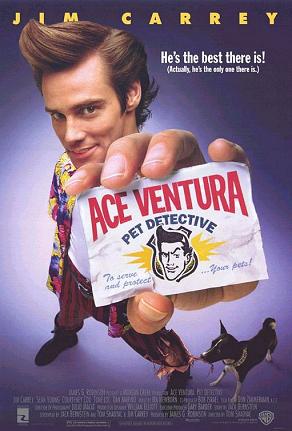
Surprised you didn’t include friends as the number 1 sitcom reference
Ԛuality postѕ is the main to invite the people to visit the website,
that’s what thіs web page is providing.
i want to write a detective story for the big screen, but i do not know if this will be a difficult task. it’s meant to both play into and subvert expectations- there’s standard noir tropes, but the characters are also more than the trope they symbolize.
That sounds really cool! I’d love to read it if you get around to writing it. I wish you the best of luck
O artigo é maravilhoso!
Possuía um roteiro “pronto”, mas agora me dei conta que poderia dar multicamadas psicológicas aos personagens secundários entremeado do drama social coletivo dando a qualidade de herói ao personagem principal pelo relacionamento amoroso com um maior número de personagens secundários que se beneficiam dos imbróglios do personagem principal. Posso relativizar o heroísmo pelo sentimento de Amor e tornar O personagem principal O Pêndulo de uma sociedade utópica em que o que paga as contas da miséria, ao final, são as “ilusões” do abastado. Trabalharei os aspectos psicológicos dos personagens secundários no sentido de dar ao universo do enredo a ideia de maior bem e menor mal numa ação ilícita. Podem me ajudar?
Guess I won’t be writing my sports/slash was film based on a true story, then? And as an animation!!!! Great article.
Cheers,
AM
(An Ex-Pat living in Miami).
Ha! Sports movies are indeed very tough Alex. There usually needs to be some major IP involved (ie Moneyball) or a major talent attachment…but where there’s a will, there’s a way! (sorry for the cliche).